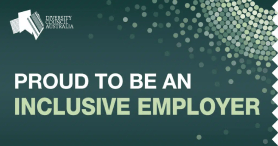What is R U OK Day?
We all have our up’s and down’s, every annum the second week in September an ‘R U OK? Day’ is run to create social awareness for people who may be struggling with juggling life.
R U OK? Day Aims to motivate individuals to start more conversations around asking others if everything is ok and how to approach someone who may not be ok. Data collected in the last 12 months indicated that over 51% of Australians wished they had someone to ask them if they were ok.
The power of a meaningful conversation can go a long way. Everyone has something going on from time to time by asking “Are you ok?” inspires people to reach out to others in need and invest time with people that may experience hardship.
Learning the signs and getting involved could not be easier
Learning when to ask if someone is ok is a great deal of how we can help one another. It can be overwhelming to not know what to say when someone answers “I’m not ok”. Following a four-step method we can ensure the wellbeing of those we care about in our surroundings are looked after.
Step 1. Ask R U, OK?
Choose the right time to start the conversation. If you notice someone you care about out of character, ask them discretely how they are going, if they are ok. Mention the reasons why you think they may not be themselves or may have concerns can also help them be open to conversation.
Step 2. Listen
Listening plays a large part of the process, by listening and taking seriously what another says without interrupting can go a long way. By showing that you are interested and repeating what they are saying in your own way can help them feel heard.
Step 3. Encourage the Action
By helping encourage a solution or options to manage their situation can help. If you notice the there is no change for more than two weeks, it is a good idea to encourage help from a health professional. Speaking of Health Professions with a positive mind set can encourage guiding someone in a proactive direction.
Step 4. Check in
After reaching out to someone and providing the safe space to share, it is important to continue checking in and showing that you are genuinely interested in their wellbeing. Authentic care can go a long way.
For more information visit the R U Ok? website.





